Papua New Guinea Tours & Holidays
Small Group Tours & Tailor-Made Holidays
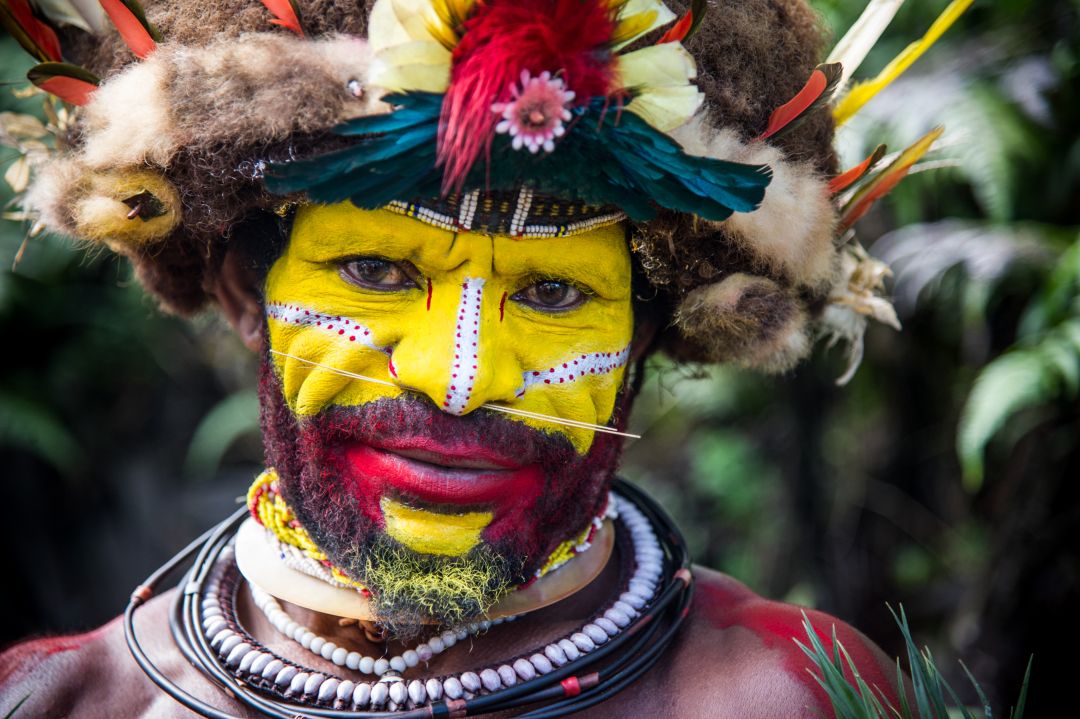
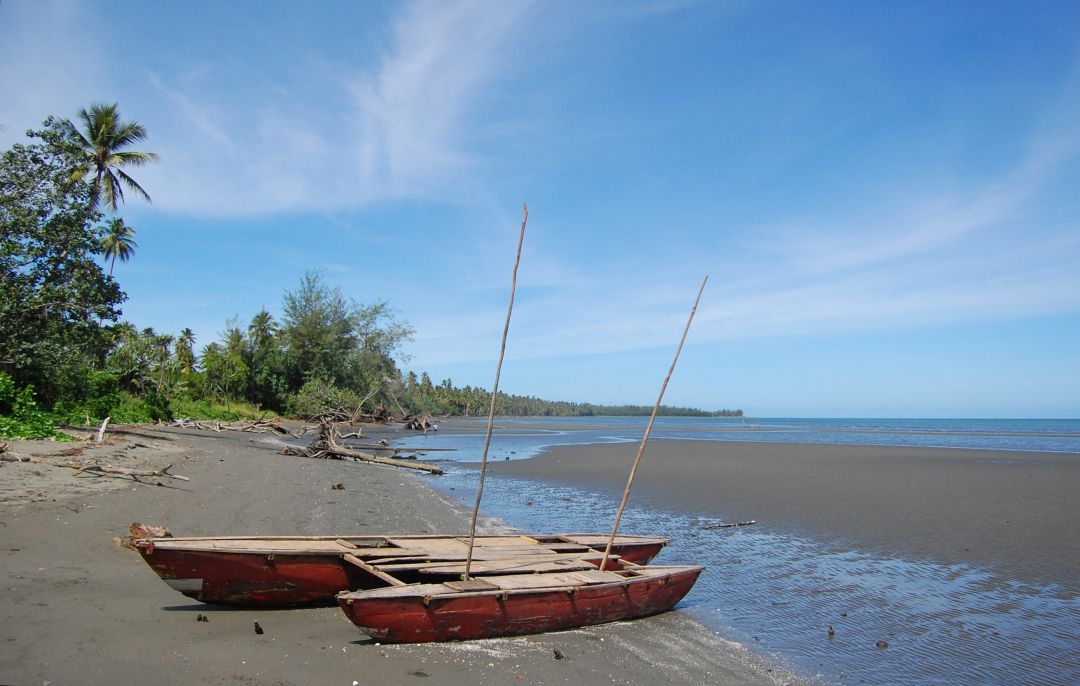
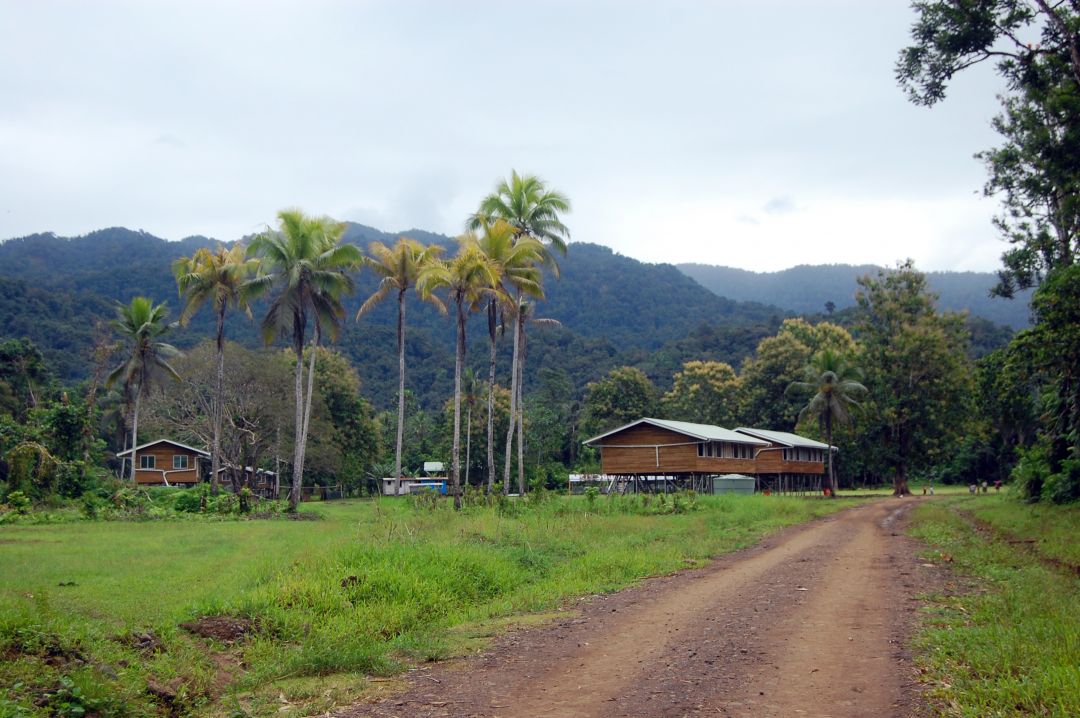
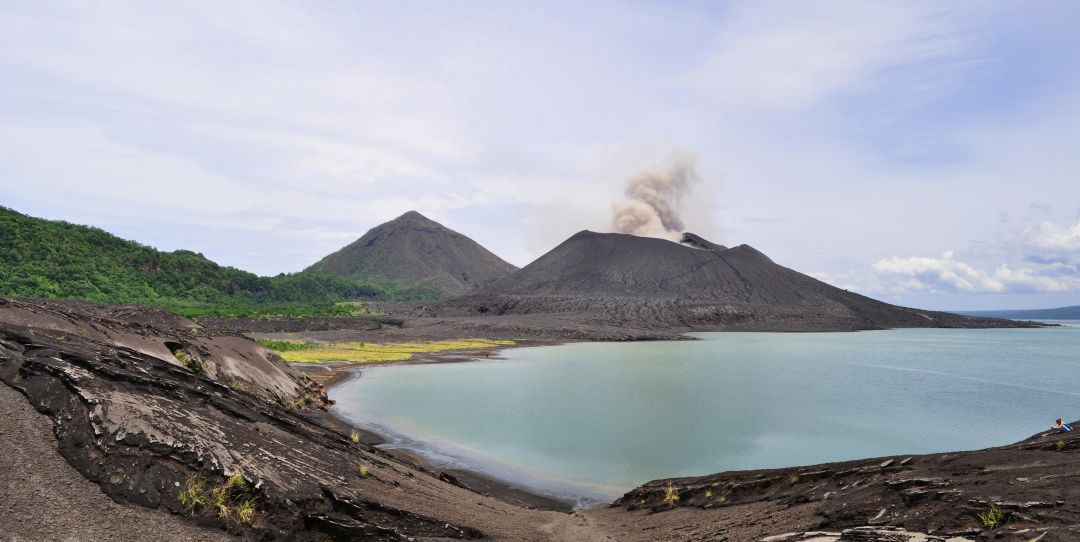
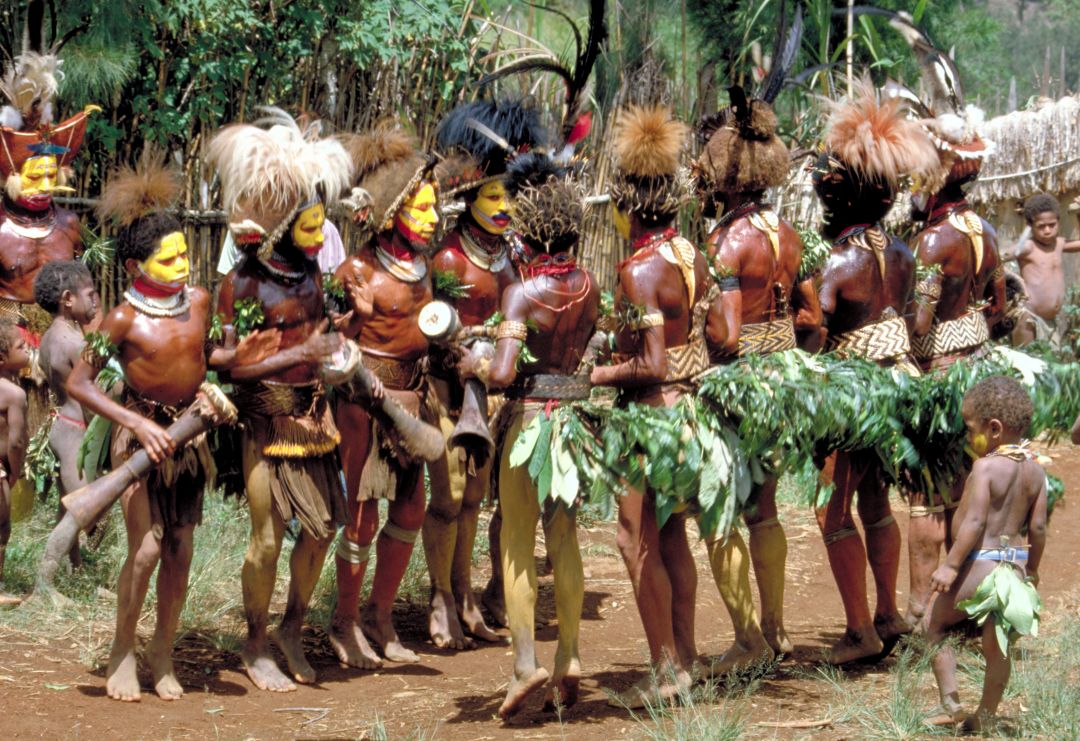
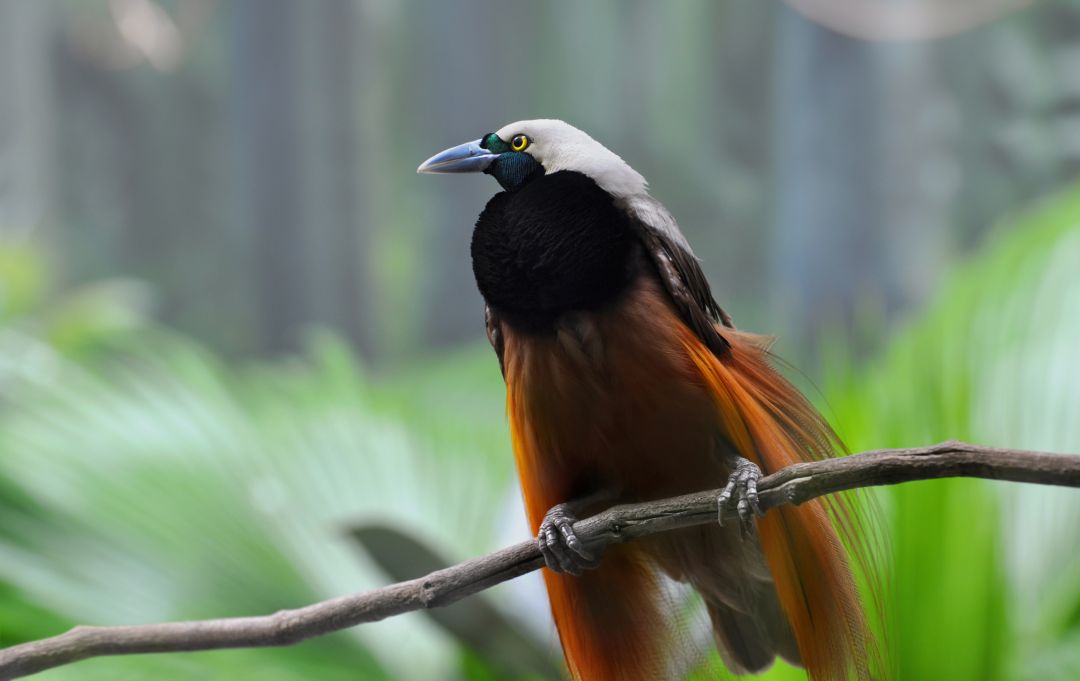
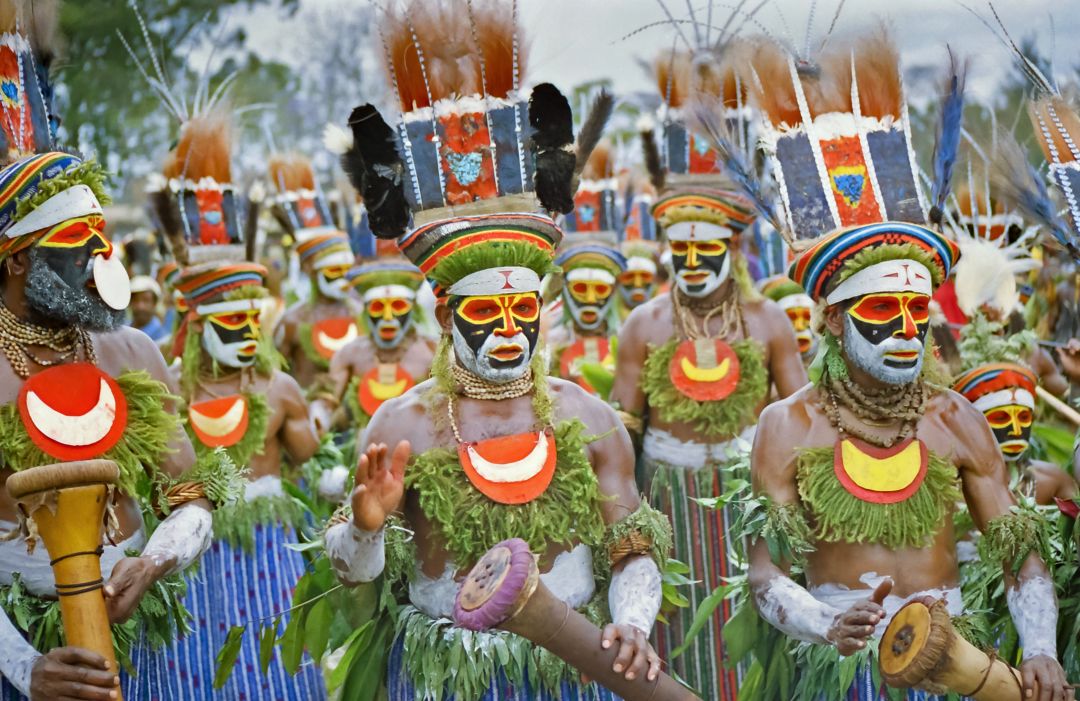
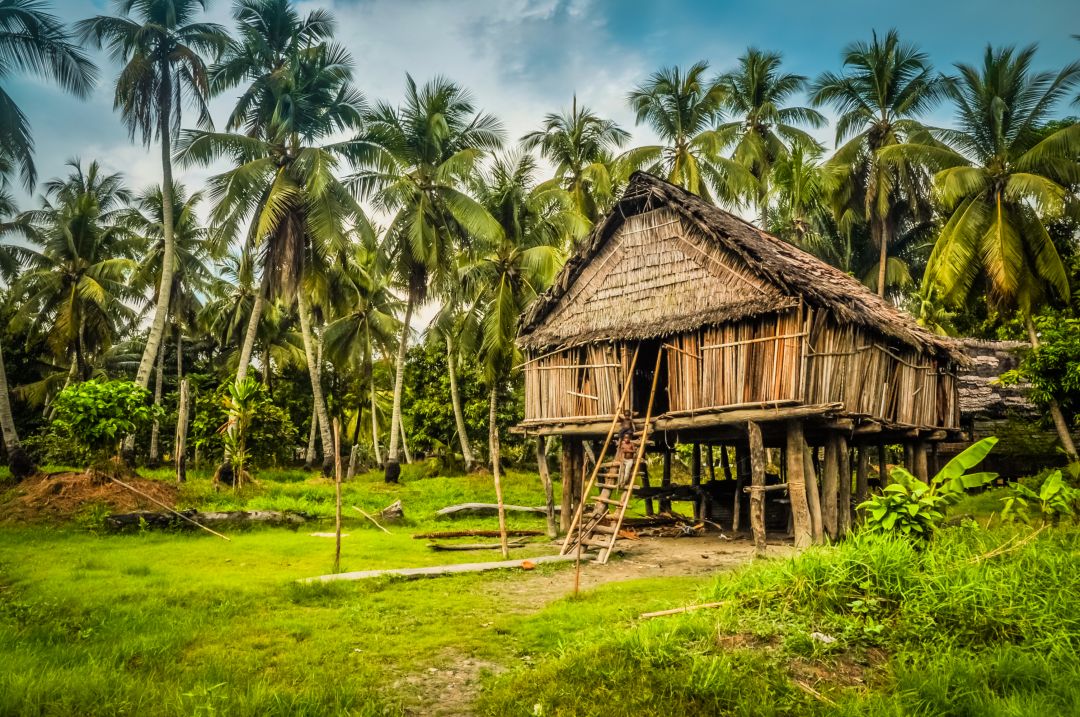
To view images fullscreen please turn device
Overview
Sitting amongst the South Pacific islands of Oceania, Papua New Guinea is home to one of the most culturally diverse landscapes on earth. Boasting hundreds of ethnic groups and no fewer than 852 languages, it can justifiably claim to be one of the most heterogenous countries anywhere in the world. Occupying the eastern half of the island of New Guinea, its cultural traditions can trace their ancestry back to one of the earliest waves of human migration, when the original settlers arrived from ...
Sitting amongst the South Pacific islands of Oceania, Papua New Guinea is home to one of the most culturally diverse landscapes on earth. Boasting hundreds of ethnic groups and no fewer than 852 languages, it can justifiably claim to be one of the most heterogenous countries anywhere in the world. Occupying the eastern half of the island of New Guinea, its cultural traditions can trace their ancestry back to one of the earliest waves of human migration, when the original settlers arrived from Africa some 45,000 years ago. It is estimated today that more than a thousand cultural groups exist in PNG, each cultivating its own expressive forms of dance, art and costume.
Aside from its remarkable human diversity, PNG and its offshore islands are also home to an incredible richness of animal life. Occupying the northern extension of the Indo-Australian tectonic plate, its resident wildlife have close genetic links with its larger neighbour to the south, with several species of marsupial mammals such as kangaroos and possums being found here and nowhere else. Many of the outlying islands are also abundant in indigenous flora and fauna unseen on the larger landmasses. Rich in rainforests, mangroves and swampland, the region also supports an incredible population of bird species, with over 780 recorded, of which 76 are endemic to the islands.
One of the last great adventures, Papua New Guinea takes you back to the golden age of exploration, where new discoveries are still waiting to be made.
Meet the Experts
Start your journey
Group tours
Travel to Papua New Guinea with like-minded people on one of our small group tours (usually max size 12), featuring knowledgeable local guides and an expert tour leader.
HIGHLIGHTS OF PAPUA NEW GUINEA
BEST EXPERIENCES
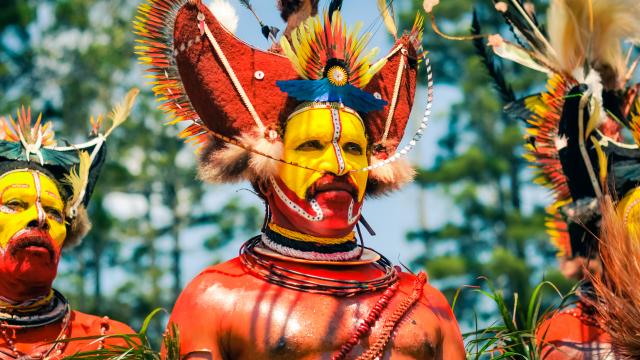
Experience a tribal gathering
Experience either the famous Goroka Show or Hagen Show, both huge highlights of the Papua New Guinea cultural calendar
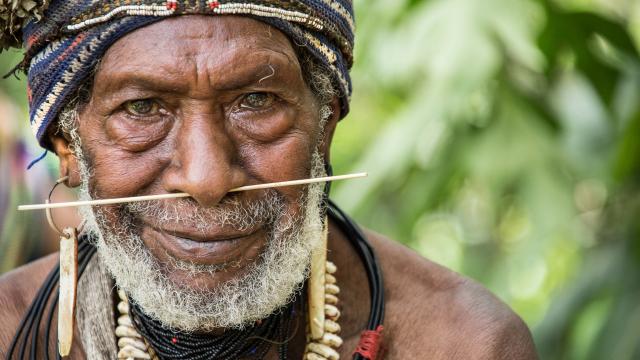
Stay with a remote tribe
Spend two days enjoying the hospitality of the remote Kalam tribe in the Northern Highlands
Discover more
WHEN TO GO
USEFUL INFORMATION
Health and Vaccinations
There are no mandatory immunisations for travellers to Papua New Guinea though you should be up-to-date with Typhoid, Tetanus, Polio and Hepatitis A. Malaria is present in all parts of Papua New Guinea, so we recommend you seek advice from your local GP or travel centre as to the correct immunisations and preventative treatments.
Currency
In Papua New Guinea the official unit of currency is the Kina.
To check out the latest exchange rate for the places that you are visiting you can go to www.oanda.com.
Cultural Sensitivity
On our tours we frequently interact with local people, each with their own distinct customs and traditions. We therefore ask you to be considerate and to treat them with respect. Your tour leader will be able to advise you accordingly.
When travelling through Papua New Guinea please be aware that the tribal areas mostly conservative and as such you should dress respectfully. Politeness and respect to elders is of paramount importance as is general pleasantries to any locals you meet. There are many local traditions and practise so follow the lead of your local guide with regard to your behaviour so as not to offend.
At Wild Frontiers we are very aware of the ethical impact tourism can have on ancient cultures. We realise that taking a group of tourists through such a region can have a negative impact on the lives of those who live there and on all our tours we therefore go to great lengths to minimise the negative and accentuate the positive…after all, there are also many good things that the tourist can bring.
To help this process we ask that our clients do not hand out pens or sweets to children. As one sign in Egypt emphatically put it, ‘Please don't make beggars out of our children!' No matter how well intentioned, in our opinion the doling out of free gifts fosters a ‘beggar mentality' that is ultimately extremely destructive to a society. In addition, we do not condone giving out money to beggars or ‘students'.
However, we also realise that we are exceptionally privileged to be travelling in areas where most of the people have far less than us and that the desire to ‘help' can be very powerful. As a result, we ask that you refer to your trip itinerary for information on the Wild Frontiers Foundation which supports specific projects in the areas where we travel.
Language & Religion
Religion in Papua New Guinea is predominantly Christian, with traditional animism and ancestor worship often occurring less openly as another layer underneath or more openly side by side Christianity. The courts and government in both theory and practice uphold a constitutional right to freedom of speech, thought, and belief. A large majority of Papua New Guineans identify themselves as members of a Christian church (96% in the 2000); however, many combine their Christian faith with traditional indigenous beliefs and practices. Other religions represented in the country include the Bahá'í faith and Islam.
The languages of Papua New Guinea today number over 850. These languages are spoken by the inhabited tribal groups of Papua New Guinea, making it the most linguistically diverse place on earth. Its official languages are Tok Pisin, English, Hiri Motu and Papua New Guinean Sign Language. Tok Pisin, an English-based creole, is the most widely spoken, serving as the country's lingua franca
Time
PNG is 10 hours ahead of GMT.
A useful website to check the time zone differences is www.worldtimezone.com.
Food and drink
The traditional diet of Papua New Guinea is largely vegetarian with the population relying heavily on taro roots, sweet potatoes and sago. Fruits are also considered a staple of the diet with bananas, coconuts, guavas, pineapples, watermelons, papayas and mangoes often accompanying meals. Pigs and chickens are usually cooked on special occasions while those who live on the coasts enjoy fish, crab and crayfish.
Traditional Papua New Guinean meals are based on indigenous ingredients that have been gathered in jungles or grown in home gardens, such as Chicken pot - chicken that has been simmered with mixed vegetables and coconut cream. One delicacy we hope to sample is Mumu, pork roasted in a traditional earth oven and is served with sweet potatoes, rice and vegetables. Other traditional dishes are Kokoda fish cooked with a lime-coconut sauce. Kaukau which is baked sweet potato. Sago from the sago palm is the starch used for making bread and puddings such as Dia – sago and bananas cooked with coconut cream.
In terms of drink most of the coffee grown in the PNG highlands is Arabica and is very good, although some locals drink Nescafe. Coconuts are plentiful and used as a local source of liquid refreshment. Local PNG beers from the South Pacific Brewery include SP lager known as a ‘brownie’, South Pacific Export and SP Gold, although there are newer trendier beers such as Niugini Ice. Wines and spirits imported from Australia are readily available in the larger hotels and restaurants although they do come with a price tag.
Travelling Solo In Papua New Guinea
All of our small group tours are designed to cater for solo travellers: the number of solo travellers will vary from tour to tour, but usually over half will be travelling alone. Get all of the excitement of discovering new places combined with the security of travelling with an organised group, with like minded people.